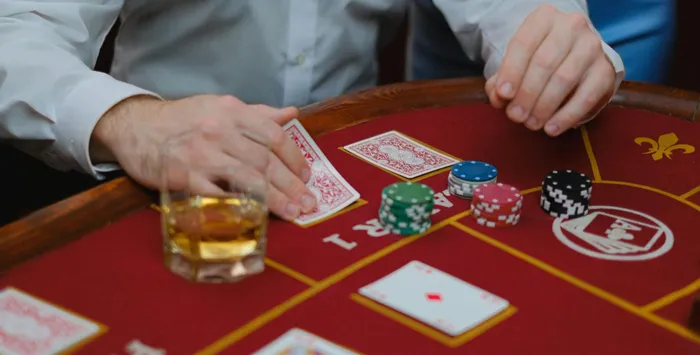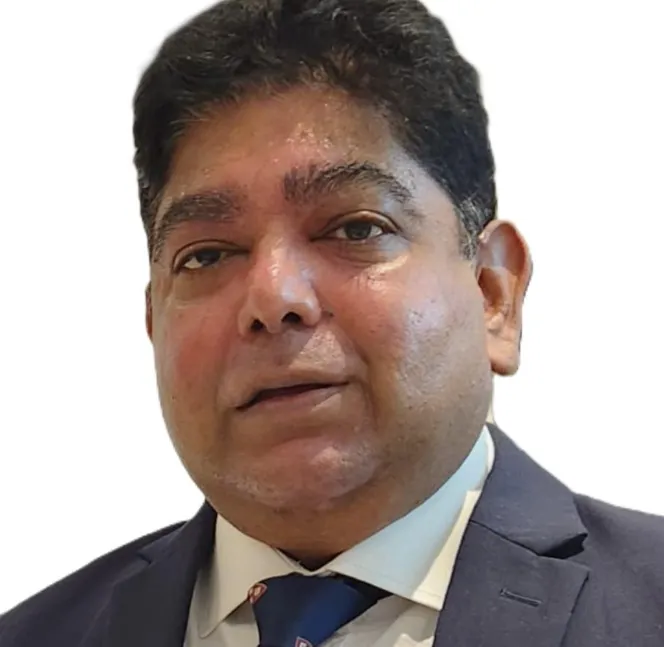South Africa's spend R1.1 trillion on gambling: is this a crisis, an economic boon or a social catastrophe?
Dire social consequences

There are more than 12.3 million South Africans living below the poverty line, with many seeing gambling as their only hope.
Image: File
FOR the year ended March 2024, South Africans spent a staggering R1.1 trillion on gambling, a figure that dwarfs the budgets of key government departments like health and education. Lotteries, casinos, sports betting, and online gambling are responsible for this spike in betting.
While there is a national debate on this, with many pondering whether gambling activities could be defined as an economic lifeline for the poorest South Africans or is it a societal time bomb. The nation currently records a technical official unemployment rate of 32.9% (while economists argue that the actual rate is higher).
Inflation has been rampant over the last 5 years and is squeezing household budgets, while fuel prices and runaway transport costs add to the burden. Several South Africans are turning to gambling as a desperate escape from poverty. However, this pathway is accompanied by deep consequences.
There are deep costs associated with this choice, not only losing one's money but also the social issues that accompany gambling:
The economic impact
Could gambling boost GDP, or is it considered a drain on household incomes, where the R1.1 trillion gambling boom is a mystical economic mirage or possibly an economic disaster, and what is gambling’s real contribution to the South African economy?
- Tax revenue records confirm that the gambling industry contributed R3.5 billion in tax revenue in 2023 (according to the National Gambling Board).
- Employment within the sector accounts for over 100 000 jobs depend on casinos, bookmakers, and online platforms.
- GDP growth attributed to gambling accounts for 0.5%.of SA’s GDP, comparable to the agricultural sector; however, this growth may not be sustainable.
The hidden economic drain
- This creates a household debt crisis with gamblers supposedly losing R50 billion annually in an industry that observes R1.1 trillion of bets. This pushes many into debt, using credit cards, bank loans and loan sharks (National Credit Regulator)
- Opportunity cost: in basic economic terms, translates into money spent on betting that could instead go toward education, small businesses, or savings.
- Regressive tax effect: where low-income earners spend 10-20% of their income on gambling vs. 1-2% for high earners (HSRC Study), with casinos observing more visitors at the month end, when workers have been paid.
A key insight is that gambling profits are concentrated with a few corporations, while the losses are spread across millions of vulnerable households.
The social consequences: the case for gambling addiction destroying families
There may be a real social crisis where families are torn apart by gambling addiction.
- The rise of "hope gambling": we record more than 12.3 million South Africans living below the poverty line, with many seeing gambling as their only hope. TikTok and Twitter trends glorify "big wins," fueling the illusion of easy money, which is enough to lure the poor and hopeless. It is common for people to have lost their rent or salary, and testimony from a recovering addict who shares, "I lost my salary, my car, and my family. I kept thinking, ‘One more bet and I’ll fix everything'."
- The family fallout with a rise in domestic violence: where 1 in 4 gambling addicts admits to violent outbursts after losses (SADAG Report), often associated with child neglect: kids go hungry as parents chase losses. Suicide rates: gambling-related suicides have tripled since 2020 (SA Depression & Anxiety Group).
- The digital gambling epidemic: the ease of online betting apps from well-known gaming houses, targets youth with "free bet" promotions. According to a UNICEF Study, Underage Gambling: 40% of high schoolers have placed a bet.
The psychological trap with people chasing "quick money" despite the odds
This begs the question: why do people keep gambling despite the odds?
- The psychology of "near misses": is a phenomenon where the brain treats near-wins like real wins, triggering dopamine addiction (Stanford Research). There is an illusion of control, with gamblers believing they can "beat the system" with strategies.
- Marketing manipulation: we are assaulted with adverts that promise "get rich quick!" but they hide the 99% loss rate. Advertising agencies use celebrities and sports stars to endorse betting, normalising risk.
- Government and corporate complicity: there is a lack of regulation in SA concerning spending limits on betting apps kids are being groomed into gambling with video games like Loot Boxes & "Skin Gambling".
Policy failures and solutions, can regulation curb the crisis?
- Stricter regulations: we could ban credit card betting, following the UK example. There could be an enforcement on loss limits, for example, R1 000/month max for low-income earners. We can consider banning gambling adverts and endorsements, similar to what we have done with tobacco.
- Public awareness campaigns: we need to share "truth about gambling" ads (similar to anti-smoking campaigns) and create school programs teaching financial literacy, advocating against gambling.
- Support for people with an addiction: we should offer free counselling via NGOs like Gamblers Anonymous SA and encourage self-exclusion registers to block addicts from casinos and betting sites.
South Africa’s R1.1 trillion gambling habit is not just an economic issue - it’s a public health emergency. While the industry profits, families collapse, and the poor get poorer. The government must act before another generation loses to the false promise of "easy money".
"You can’t gamble out of poverty - but you can gamble your way into it."

Advocate Lavan Gopaul
Image: File
Advocate Lavan Gopaul is the director of Merchant Afrika.
** The views expressed do not necessarily reflect the views of IOL or Independent Media.
Related Topics: